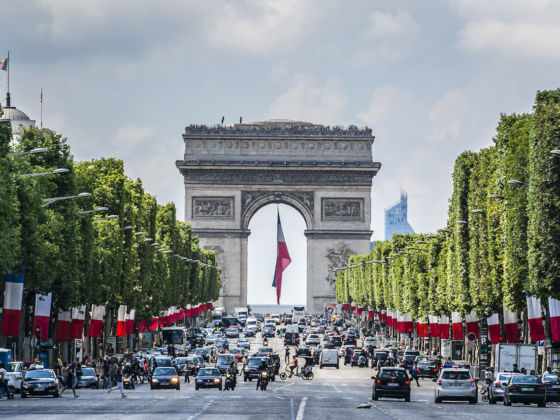Although America’s Independence Day has come and gone, France can still look forward to its national holiday on July 14 — Bastille Day (which may be extra patriotic this year given that the France vs. Croatia World Cup finals are the very next day). Bastille Day celebrates the storming of the Bastille prison in 1789 by the French revolutionaries, and its fall symbolizes the fall of royal tyranny and oppression. But beyond a few basic facts, you might not know a whole lot about Bastille Day or how it’s celebrated by the French. Here are seven things you probably don’t know about Bastille Day.

1. July 14 isn’t just significant for the Bastille storming.
When the French government was trying to decide on a national holiday in 1880, it was a rather controversial subject. Conservatives opposed the July 14 date because they believed the Bastille storming was too bloody to merit celebration. Several other options were considered, including September 21 when the original French Republic was created, and August 4, the anniversary of the feudal system’s abolishment. Eventually, July 14 won out because it represented two historic occasions in French history: the storming of the Bastille in 1789 and 1790’s peaceful Festival of the Federation. Citizens were invited to decide for themselves which event they’d rather celebrate, though Bastille Day has certainly emerged as the predominant event.
2. The storming only freed seven prisoners.
While much is made of the freeing of prisoners at the Bastille on July 14, there were actually only seven captives left inside the prison. Some reports say these prisoners were insane, forgers, and disgraced noblemen, though we may never know for sure exactly who they were. The dearth of prisoners didn’t spoil the revolutionaries’ victory, however, because…
3. The Bastille was stormed primarily for gunpowder.
Preparing for war, the National Assembly and ordinary French citizens realized they needed weapons and ammunition. Before the storming of the Bastille, they broke into a soldiers’ hospital in Paris and seized 3,000 guns and five canons, but this firepower was useless without gunpowder. Immediately after seizing the guns, the group continued on to the closest location with the largest stockpile of gunpowder: the Bastille.
4. The Bastille wasn’t originally a prison.
When the Bastille was built in 1357, it was designed as a fortress to keep out invading armies during the Hundred Years’ War with England. The Bastille was meant to stall an attack on Paris from the east. After the war, the fortress’s rectangular walls and tall towers made it an effective prison, though it didn’t actually house a prisoner until the 17th century when Cardinal de Richelieu began jailing Louis XIII’s enemies there.
5. All the action happens at fire stations.
If you happen to be in France on Bastille Day and want to celebrate as authentically as possible, head to your local fire station. On the night of July 13 or 14, most fire stations throw large dance parties for the entire neighborhood. Some charge an admission fee, though for those that don’t, it’s customary to leave behind a donation.
6. The annual parade is one of the oldest military parades in the world.
For Parisians, one of the main attractions of Bastille Day is the annual military parade down the Champs-Elysees. The parade begins in the morning with drums and trumpets announcing the arrival of the French president and proceeds from the Arc de Triomphe to Place de la Concorde. There’s a lot happening on the ground, but don’t forget to look up. Planes and helicopters will be putting on an unforgettable show in the sky.
7. In France, no one calls it “Bastille Day.”
Surprisingly, calling the holiday “Bastille Day” is probably the most touristy mistake you can make if you’re traveling around France on July 14. Officially, the French refer to the day as la Fête Nationale, or “The National Holiday.” Informally, natives call it le Quatorze Juillet (July 14). “Bastille Day” is actually an English term rarely used in France — except by tourists.